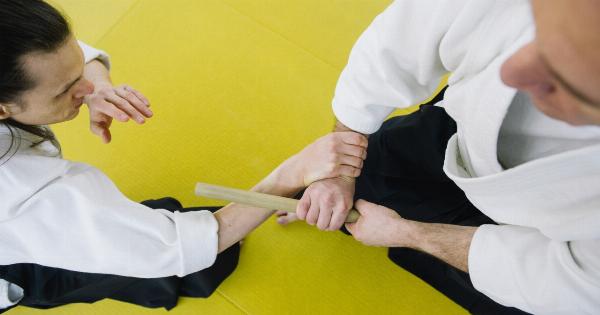Self-command is an essential skill to develop as it helps individuals to stay in control of their thoughts, emotions, and actions.
It’s the ability to resist impulsive decisions, make rational choices, and take responsibility for one’s actions. Self-command is not a trait that is innate to every individual; instead, it is acquired through time, experience, and conscious effort. Fortunately, there are specific actions one can take to enhance their level of self-command.
This article explores the unexpected move that leads to increased self-command.
What is Self-Command?
Self-command is a quality that enables individuals to take charge of their lives, their decisions, and their actions. It is the ability to demonstrate self-restraint, act appropriately, and manage oneself effectively.
Self-command is necessary for personal development and growth. When individuals have self-command, they have the power to overcome obstacles, face challenges, and achieve their goals.
The Benefits of Self-Command
Self-command has several advantages that can positively impact an individual’s life. Some of the benefits include:.
- Better decision-making
- Increased self-confidence
- Greater self-discipline
- Reduced stress
- Improved relationships
The Unexpected Move
The unexpected move that leads to increased self-command is to practice the art of waiting. In today’s fast-paced world, waiting is often viewed negatively, and it’s considered a waste of time.
Waiting can lead to frustration, impatience, and anxiety. However, when individuals learn to embrace waiting, they develop vital skills that can help them strengthen their self-command.
Firstly, waiting helps individuals to develop patience.
Patience is a state of mind that enables individuals to remain calm, composed, and tolerant even in difficult situations. A patient individual is more likely to make rational decisions and less likely to act impulsively. Individuals who are not patient may rush to make a decision or take action without considering all the options, which can lead to negative consequences.
Secondly, waiting gives individuals the opportunity to reflect on their decisions and actions. When individuals are forced to wait, they have time to re-evaluate their choices and consider the consequences of their actions.
Reflection is an essential part of personal growth and development. It helps individuals to gain insight into themselves and their behaviors, which is crucial for building self-awareness and self-command.
Thirdly, waiting helps individuals to manage their emotions. When individuals are in a rush or feel pressured to make a decision quickly, they may experience intense emotions such as anxiety, frustration, or anger.
However, when individuals learn to wait, they can manage their emotions more effectively. They can take a step back and assess their emotions, which can help them to make better decisions based on logic and reason rather than emotions.
Finally, waiting teaches individuals the importance of delayed gratification. Delayed gratification is the ability to resist the temptation of immediate rewards for the sake of long-term benefits.
When individuals learn to wait, they develop the skill of delaying gratification, which can help them to achieve their goals more effectively. Individuals who can delay gratification are more likely to make better decisions and take actions that align with their long-term objectives.
How to Embrace Waiting
Embracing waiting can be challenging, especially in a culture that values instant gratification. However, with practice, individuals can learn to appreciate the benefits of waiting. Here are some tips on how to embrace waiting:.
- Practice mindfulness: Mindfulness is the practice of being present, aware, and non-judgmental. When individuals practice mindfulness, they can stay in the moment and focus on their thoughts and feelings without getting caught up in them. Mindfulness can help individuals to manage their emotions and reduce impulsivity.
- Set realistic expectations: Setting realistic expectations can help individuals to avoid feeling frustrated or disappointed when things don’t happen as quickly as they would like. Instead of expecting immediate results, individuals can set realistic goals and focus on the process rather than the outcome.
- Use waiting as an opportunity for growth: Waiting can be an opportunity for personal growth and development. Instead of feeling frustrated or anxious, individuals can use waiting as a chance to reflect, learn, and grow.
- Practice delayed gratification: Delayed gratification is a skill that can be practiced. Individuals can start small by delaying small rewards such as watching television or eating dessert until they have finished a task. Gradually, individuals can work up to delaying gratification for more significant rewards, such as a career change or a long-term goal.
Conclusion
Self-command is a critical skill that can help individuals to take control of their lives, make better decisions, and achieve their goals. The unexpected move that leads to increased self-command is to practice the art of waiting.
Waiting can teach individuals patience, reflection, emotional management, and delayed gratification. By embracing waiting, individuals can develop vital skills that can help them to strengthen their self-command and enhance their personal growth and development.





























